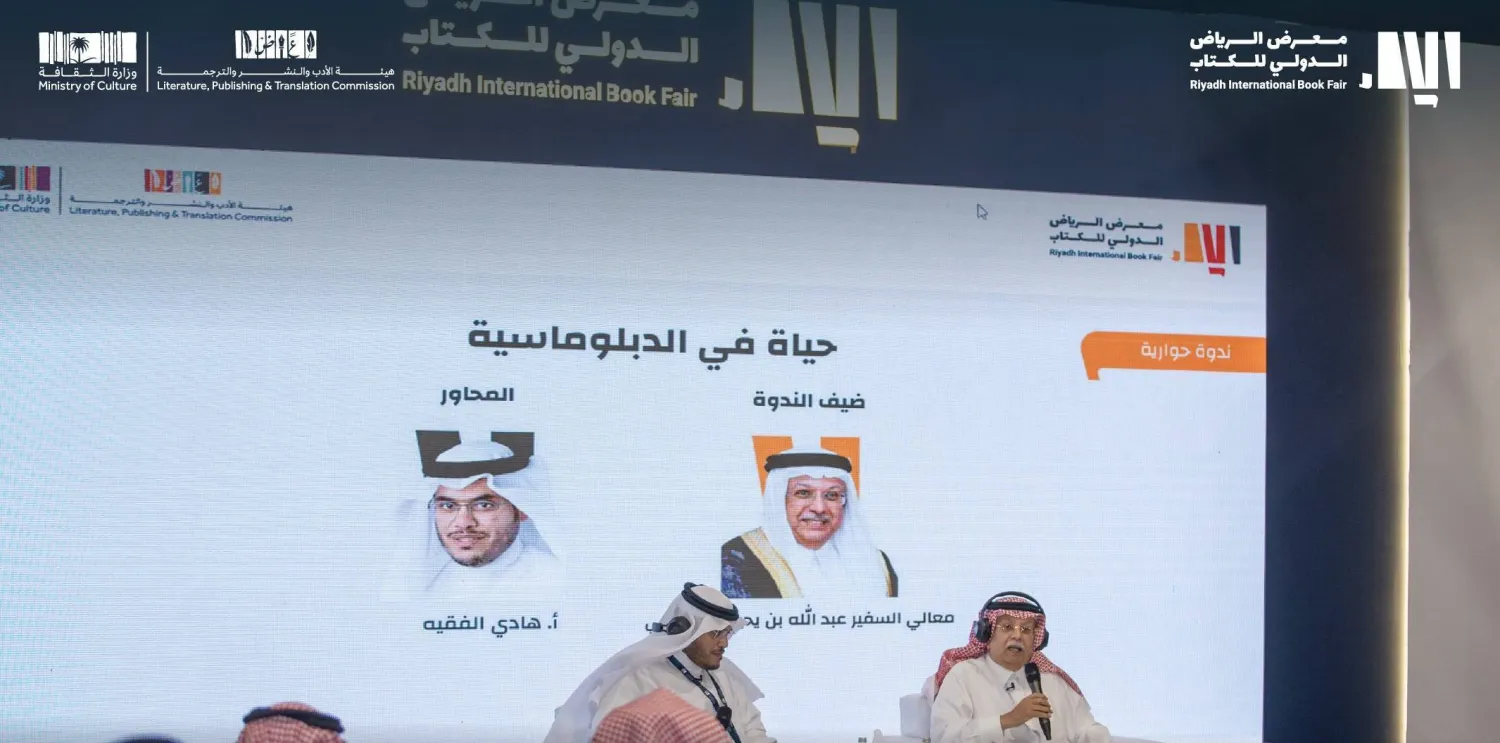Former Saudi Ambassador and Diplomat Abdullah al-Moallemi said his 12-year service as Saudi Arabia’s permanent representative to the UN coincided with one of the hardest phases in the Arab region.
Moallemi highlighted that what happened in 2011 in the Arab region was a recession of the economic, cultural, and social standards, and that Saudi Arabia stood steadfast to prove its wise vision on maintaining the region’s stability and overcoming what he described as the Arab world "recession period”, being a role model for Arab citizens everywhere.
The former diplomat said he was delighted to represent the kingdom in major international platforms, using his speech, dialogue, and argument skills to express the Saudi point of view. “It was a unique and rich experience that still affects me even after concluding this chapter of my diplomatic journey,” he explained.
During a seminar on “Diplomacy Life” at the Riyadh International Book Fair, Moallemi recalled with his host, journalist Hadi al-Fakih, many situations and moments from his academic journey in Oregon, US, his diplomatic missions, and his 10-year service as Saudi Arabia’s representative to the UN.
“I am a soldier of the Custodian of the Two Holy Mosques, Salman bin Abdulaziz and his Crown Prince, Mohammed bin Salman, and I will serve this dear country in every position,” he assured.
Moallemi also recalled his childhood in Al Qunfudhah province, where he was born. “My mother had a great influence in my life. I learned to read and write from my father, but my mother’s passion of culture and science drove her children to achieve high academic ranks,” he said. “My mother was born in Al-Dara village, in the suburbs of Abha. While my father was preoccupied with his work in the army, she dedicated her time to teach, motivate, and train us for life. Although he was an army man, my father was way more diplomatic than my mother, who was known for her firmness, but they were both on the same page when it comes to the importance of reading and education.”
The former diplomat revealed that he’s working on a book featuring his memoirs and memories from his academic and professional journeys. Dubbed “Soldier and Son of a Soldier in International Diplomacy”, the book will be released in November, and will be available for discussion in the next edition of RIBF.
Moallemi recalled that when he was asked about his wishes as a child, his answer was unfamiliar, always saying that he wants to become an ambassador. Years later, he fulfilled the dream and became an ambassador of Saudi Arabia to Belgium, the European Union, the NATO, Luxembourg, and then to the UN, the dream of every diplomat.
“I was delighted with this opportunity, and with the trust of the Saudi leadership, being selected by Prince Saud Al Faisal to represent my country for 12 year in the United Nations. Today, I feel relieved because I successfully accomplished my mission and left the responsibility for the best diplomats after me,” he said.
Moallemi also recalled several encounters he had with late Foreign Minister, Prince Saud Al Faisal, and how he asked him for advice in the beginning of his diplomatic mission.









